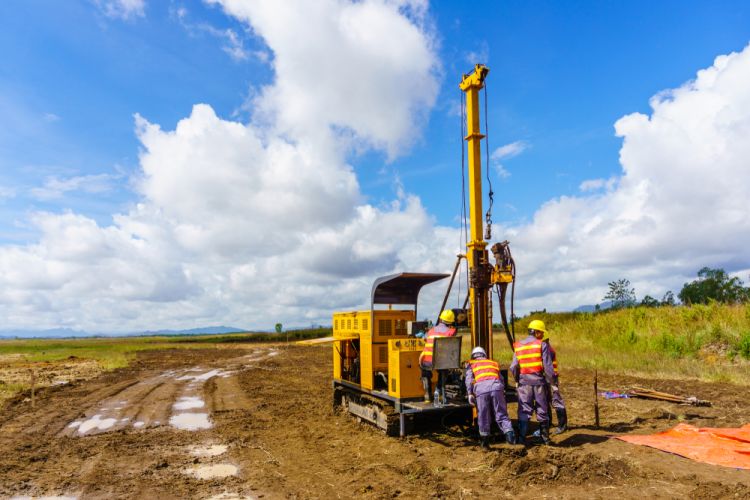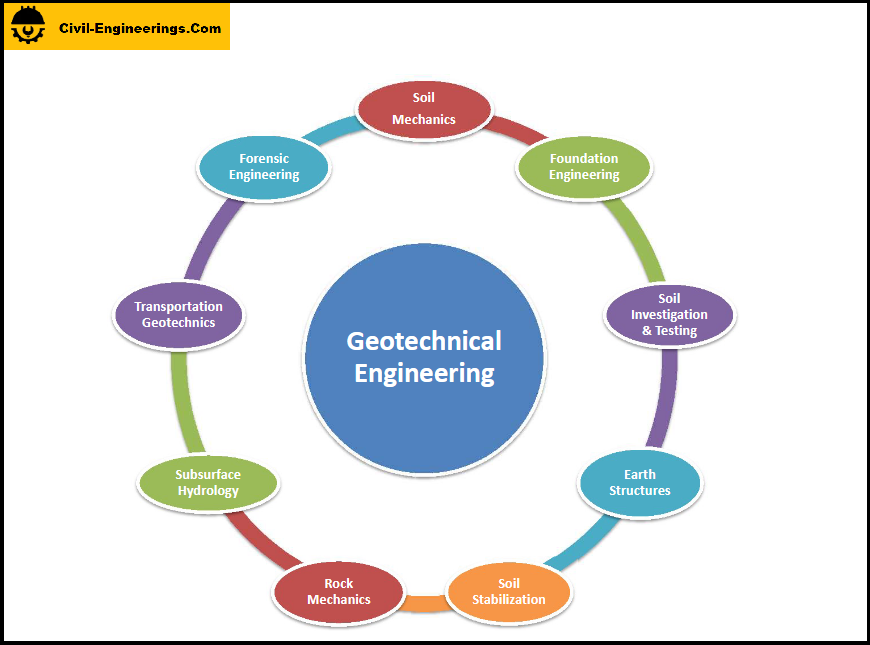Specialized Geotechnical Engineering Solutions for Beginners
Table of ContentsSpecialized Geotechnical Engineering Solutions for DummiesNot known Factual Statements About Specialized Geotechnical Engineering Solutions The Of Specialized Geotechnical Engineering SolutionsExcitement About Specialized Geotechnical Engineering Solutions
They carry out website examinations, collect examples, execute laboratory tests, and assess information to examine the viability of the ground for construction jobs. Based upon their searchings for, geotechnical designers offer suggestions for structure layout, slope security, maintaining frameworks, and reduction of geotechnical hazards. They work together with other experts, such as engineers, architectural designers, and construction teams, to ensure that geotechnical considerations are incorporated right into the total task layout and application.
Foundation Style: Geotechnical designers play a critical function in creating structures that can securely sustain the intended structure. They evaluate the soil problems and tons needs to establish the suitable foundation type, such as shallow foundations (e.g., footings), deep foundations (e.g., piles), or specialized techniques like soil improvement. They think about aspects such as settlement limitations, birthing capability, and soil-structure communication to establish ideal structure styles.
Unknown Facts About Specialized Geotechnical Engineering Solutions
Here are some kinds of geotechnical designers: Foundation Engineer: Structure designers concentrate on designing and assessing structures for frameworks - Specialized Geotechnical Engineering Solutions. They analyze the dirt conditions, lots demands, and site attributes to identify one of the most proper foundation type and layout, such as shallow structures, deep foundations, or specialized strategies like stack foundations
They carry out area testing, accumulate samples, and assess the accumulated data to identify the soil residential or commercial properties, geologic developments, and groundwater conditions at a website. Geotechnical Instrumentation Engineer: Geotechnical instrumentation designers focus on tracking and measuring the behavior of dirt, rock, and structures. They install and preserve instrumentation systems that monitor elements such as dirt settlement, groundwater degrees, incline movements, and architectural displacements to examine performance and offer very early cautions of potential concerns.
In the office atmosphere, geotechnical designers utilize specialized software application devices to execute computations, develop designs, and evaluate information. Specialized Geotechnical Engineering Solutions. They prepare records, review job requirements, communicate with clients and team participants, and coordinate project activities. The workplace setup gives a conducive setting for research, evaluation, and partnership with various other specialists associated with the job
They often see project sites to conduct website examinations, analyze geotechnical conditions, and collect information for evaluation. These visits involve traveling to different areas, occasionally in remote or tough surfaces. Geotechnical designers might perform soil sampling, conduct tests, and monitor construction activities to guarantee that the geotechnical elements of the job are being carried out appropriately.
Specialized Geotechnical Engineering Solutions Can Be Fun For Anyone
Geotechnical designers likewise operate in specialized geotechnical laboratories. In these centers, they carry out experiments, perform examinations on soil and rock examples, and examine the engineering homes of the materials. Geotechnical research laboratory engineers work extensively in these environments, managing testing devices, operating tools, and index taping data. They team up with various other lab staff to make certain precise and dependable screening results.
Keeping Wall surfaces: Creating walls that keep back dirt to stop landslides and provide stability on sloped surfaces. Embankments and Earthworks: Creating embankments for roads, trains, and dams to ensure they stay secure under stress. The mining market counts heavily on geotechnical engineering to make certain the safety and longevity of its procedures.
With this in mind, we have actually designed our program to prepare trainees for success. The Geotechnical Design program at the College of Delaware provides chances for innovative study and research study in: Dirt and rock technicians Soil-structure communication Constitutive modeling Computational geomechanics Foundation and earth frameworks design Ground renovation Incline security and landslide stabilization Liquefaction of soils and earthquake engineering Lab characterization of geomaterials and dirt support Ecological geotechnics Offered the strong need for improvement to our nation's infrastructurethe American Society of Civil Engineers provided the united state
Geotechnical design is a branch of civil design; nonetheless, it entails using clinical approaches and concepts to accumulate and analyze the physical residential properties of the ground. Geotechnical designers are entailed in all stages of the layout of frameworks, from principle to building and construction. Their job is necessary in the design and planning process as they analyze the stability of soil, clay, silt, sand, and rock, before building and construction starting.
Specialized Geotechnical Engineering Solutions Fundamentals Explained
This is followed by a ground examination based on the findings of the desk study and includes test pitting and tasting to uncover any kind of potential issues. Geotechnical engineers function within multidisciplinary groups, supported by intermediate and younger engineers in addition to by CAD specialists. As an elderly geotechnical designer on a hydro plant job, tasks might consist of joining technical evaluations (e.g., peer testimonials), tailings clog assessments, dam safety evaluations, and various other researches associated to the layout and building and construction of mine waste facilities.
While some professionals specialise only in geotechnics, others might function under titles like engineering rock hound or ground designer within comparable capacities. As a geotechnical engineer, you'll need to: build and keep connections with customers and other experts included in the site, throughout each projectmaintain safety requirements on site bear in mind price my website implications when you make recommendationsstudy geological maps and airborne photographs from a series of sources and from different time periodsexamine construction intends to see just how possible they are based on your understanding of the siteinvestigate dangers or geological threats for the sitesearch for eco sensitive features, such as land fill beginning to establish valid and expository ground modelsplan field investigationsdrill and evaluate examples of bedrock, dirt, groundwater and additional materials manage various other professionals on sitesolve technical problems as they arise, such as unanticipated structures at drill sitesmonitor problems throughout and after building to ensure frameworks are secure in the short and long termadd data accumulated on website to your initial researchcreate geotechnical estimations, drawings, and 2 or three-dimensional computer system models interpreting the datamake recommendations about the suggested usage of the website.
There are great deals of opportunities to meet new individuals, as you'll collaborate with a series of experts at every website. The job can be difficult go now as you may be in charge of the safety and security of others while on website. There is likewise a high degree of monetary duty, as the recommendations you make can have major cost implications.
